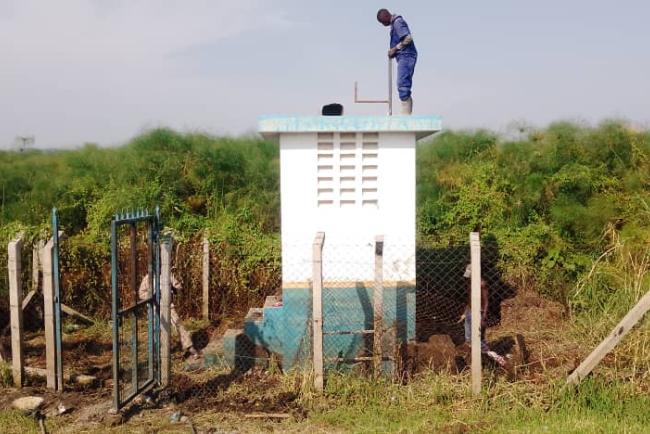Civil works inspection, quality assurance and certification of Nile Basin HydroMet Project

The Nile Basin Initiative, in collaboration with National teams in Nile Basin countries, is currently undertaking the implementation of the Regional HydroMet System as per the approved design by the Nile Council of Ministers in its 23rd meeting on 4th June 2015, in Dodoma, Tanzania.
The support under the EU-BMZ financing is organised around the following main components: updating the system design specifications and implementation plan, civil works construction and procurement & installation of new equipment at regional stations, upgrading national and regional data centres, capacity building for national staff to support the hydrometric system installation and operation, and generation of information products.
As part of the NBI HydroMet project implementation phase II, the civil works component is one of the critical steps prior to the installation of new equipment. kick-off meetings were conducted in all NBI Member States between national teams for proper orientation concerning a consistent approach to be employed for implementation of civil works. In each member country, the kick-off meeting was followed by field visits at stations for updating civil works designs and addressing national considerations, needs and expectations. The design drawings have been reviewed and national recommendations were formulated and factored in during civil works construction.
According to the NBI HydroMet project implementation setup, the civil works construction will be jointly supervised by a team comprising the NBI task team, RTI Consultant team, and national team from the National Hydrological Services. The implementation team will ensure that the civil works have been constructed considering the required code, standards, and protocols. The participation of the Ministry staff is therefore very important to ensure the active engagement of national teams as the owners of the stations as part of sustainability measures. Joint approval by countries and NBI is key for project success.
The specific objectives of this field activity in the Nile Basin countries are to undertake site visits at the regional stations to ensure that the civil works are being implemented by the contractor as per the international standards and requirements; to assess the quality of the works at the stations and confirm that civil works have been carried out as per the defined scope of work and technical requirements; to approve the civil works once all standards are fully met and no deficiencies are observed; to conduct thorough quality assurance (QA) and consequently determine the civil works defects (if exist) and agree with national teams on the necessary corrective measures, and to examine the suitability of stations for equipment installation and commissioning.
National teams’ motivation and active involvement in the activities is necessary for the achievement of the planned set of objectives. The counterpart’s role is not only important for building growing ownership that is a pre-requisite for sustainability but also vital for the ability to complete the works satisfactorily and up to national expectations.
Environmental and Social issues were included in the field work to ensure that the system is environmental friendly, with no adverse effects on the existing ecosystems, on the one hand and that it has positive impact on the livelihood of the indigenous communities, on the other hand; through an international environmental and social safeguards.
Awareness raising among local communities and engaging local labour in executing the work, guarding the infrastructure, understanding and appreciating the value added by the system to improving the social conditions in the regions as well as minimising the risks and hazards while boosting ecosystem services and local daily activities and job opportunities was consistently ensured.
